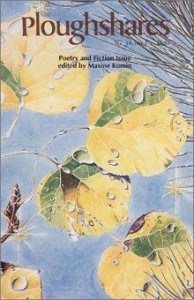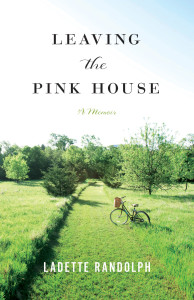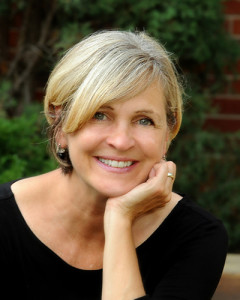Publishing Talks: David Wilk interviews DeWitt Henry of Ploughshares
February 10, 2014 by David
Filed under Publishing History, PublishingTalks
 Publishing Talks began as a series of conversations with book industry professionals and other smart people about the future of publishing, books, and culture. As we continue to experience disruption and change in all media businesses, I’ve been talking with some of the people involved in our industry about how they believe publishing might evolve as our culture is affected by technology, climate change, population density, and the ebb and flow of civilization and economics.
Publishing Talks began as a series of conversations with book industry professionals and other smart people about the future of publishing, books, and culture. As we continue to experience disruption and change in all media businesses, I’ve been talking with some of the people involved in our industry about how they believe publishing might evolve as our culture is affected by technology, climate change, population density, and the ebb and flow of civilization and economics.
Recently, the series has been expanding to include conversations about a wider range of subjects beyond my initial interest in the future of publishing. I’ve talked with editors and publishers who have been innovators and leaders in independent publishing in the past and into the present, and will continue to explore the past, present and future of writing, books, and publishing in all sorts of forms and formats, as change continues to be the one constant we can count on.
It’s my hope that these conversations can help us understand the outlines of what is happening in publishing and writing, and how we might ourselves interact with and influence the future of publishing as it unfolds. This week’s interview reflects my interest in comic art, illustrated story telling and new technology as a platform for expanding story telling in interesting and challenging ways.
Ploughshares is one of the great literary magazines of the last fifty years. Founded in 1971 in Boston by writer, teacher and scholar DeWitt Henry and writer and bar owner Peter O’Malley, it has gone on brilliantly from very humble beginnings to publish an extraordinary range of writing. Founded in a bar called the Plough and the Stars in Cambridge, Massachusetts, Ploughshares to give the young and upcoming writers of its time a voice and a platform, the magazine has been a literal breeding ground for great writers of fiction, poetry and nonfiction as well.
One of its innovations was to invite writers to guest edit individual issues. The list of editors is pretty incredible, including Seamus Heaney, Derek Walcott, Rita Dove, James Alan McPherson, Philip Levine, Gerald Stern, Raymond Carver, Rosellen Brown, Maxine Kumin, Donald Hall, Marilyn Hacker, Mark Doty, Richard Ford, Sherman Alexie, and many others. Ploughshares editors have received almost every award given in American writing. Throughout its now celebrated history, Ploughshares has managed to maintain a high level of excellence in writing and has avoided being trapped by the narrowness of a particular school or narrow vision of what American writing can be. It has consistently nurtured new talent, and continues today to bring attention to new writers. And lately, Ploughshares has broadened the definition of what a literary magazine can be with an innovative series of ebooks called Ploughshares Solos.
Interviewing DeWitt Henry about the history of the magazine, bis work as editor and writer, and the current and future of Ploughshares was a great pleasure for me. Having been involved in literary publishing and distribution myself, I know how incredibly difficult it is to sustain both the artistic and structural vision in this kind of publishing. Ploughshares truly represents an extraordinary accomplishment for those who have worked on it, published in it, and of course read the magazine during the many years of its existence.
There’s an excellent history of the magazine on it website. And you might want to visit DeWitt Henry’s own website to learn more about him as well. He is am accomplished and interesting writer too. Alert to listeners, as this is part of an effort to document the oral history of literary publishing, this is a longer than usual podcast – but worth your time to listen.

Podcast: Play in new window | Download
Ladette Randolph: Leaving the Pink House – A Memoir
November 9, 2014 by David
Filed under Non-Fiction, WritersCast
 Leaving the Pink House: A Memoir – 978-1609382742 – University of Iowa Press – paperback – $18.00 (ebook editions available).
Leaving the Pink House: A Memoir – 978-1609382742 – University of Iowa Press – paperback – $18.00 (ebook editions available).
Ladette Randolph is both an editor and a writer; she is currently the editor of the fine literary magazine Ploughshares, whose founder, DeWitt Henry, I interviewed about that magazine’s history, and she’s written a total of four books and edited three more. She was previously an acquiring editor at University of Nebraska Press and earlier, the managing editor of Prairie Schooner. She has received four Nebraska Book Awards, a Rona Jaffe grant, a Pushcart Prize, a Virginia Faulkner award, and has been reprinted in Best New American Voices.
Ladette grew up and lived much of her life in Nebraska. In this really well written and beautifully composed memoir, Leaving the Pink House, she tells the story of her life through the houses she has lived in. At first, the book appears to be a relatively straightforward memoir of buying a dilapidated farmhouse to fulfill a dream of country living (the day after September 11, 2001), and the complication of leaving the pink house she and her husband had already turned into the house of their dreams.
But Randolph is writing to understand herself and where she comes from. Leaving one beloved house for another that is full of potential (for good and bad) spurs her into exploring her past life through the houses in which she lived. And she essentially tells herself – and her readers – where she came from, and how she became the person who is able to love and inhabit her own being in the present by exploring her life through the houses in which she lived from her early youth onward.
Randolph grew up in small towns in Nebraska; her father took his family with him as he worked to become an evangelical minister. Randolph tells us what it was like for her to experience the world through the lens of fundamentalism as she grew up and then into her early adult years. She experiences a series of awakenings, tragedies and struggles, all told without over dramatization and alternating with the mundane and always challenging work of remodeling the old house in the country and preparing to move from the pink house.
It’s an engaging and perceptive form of storytelling and much like a remodeling job itself, we learn with her as she goes through the work of tearing down and rebuilding the structure of her life. I greatly enjoyed reading this book, vicariously experiencing her challenges and accomplishments, and learning about her life experiences. Then having the opportunity to talk with Ladette about it only amplified my interest in her writing. Her active and informative website is here (and worth a visit).
Podcast: Play in new window | Download

